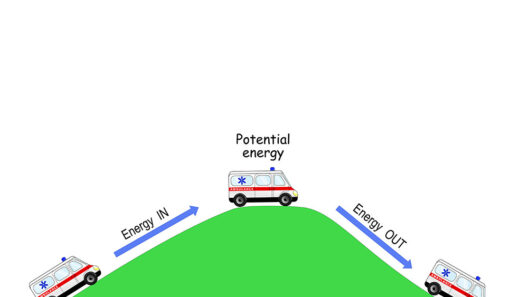As we traverse the dynamic landscape of the 21st century, one cannot help but ponder the pressing question: is solar energy conservation still necessary in 2025? Analogous to a ship navigating turbulent seas, our global commitment to sustainability demands unwavering resolve and ingenuity. The sun, an ancient celestial orb, provides an inexhaustible source of power, yet societal inertia often tempts us to disregard its potential. To understand the urgency in advocating for solar energy conservation, we must delve into the multifaceted realm of energy production, consumption patterns, and the imperative for environmental stewardship.
The imperative for energy conservation can be likened to the delicate balance of an ecosystem. Each organism, much like every energy source, plays a pivotal role in maintaining equilibrium. As countries collectively strive towards ambitious climate goals, the efficiency of energy utilization becomes paramount. Solar energy, often heralded as a clean and sustainable alternative, continues to weave its narrative of innovation and efficiency. The question arises: has the global landscape evolved sufficiently to warrant complacency, or is there still fertile ground for conservation efforts?
In 2025, the answer to that question is unequivocally affirmative. Despite remarkable advancements in solar technology resulting in decreased costs and increased efficiency, the specter of energy consumption looms large. As urbanization accelerates and populations burgeon, so too does the demand for energy. Solar energy conservation remains an essential cog in the machinery of sustainable development. The mere act of harnessing solar power does not absolve us from responsibility; indeed, the act of conservation amplifies the benefits derived from these renewable sources.
The synergy between technological advancements and conservation cannot be overlooked. Innovations such as bifacial solar panels and solar tracking systems exemplify how harnessing energy can become increasingly efficient. However, a corollary to this evolution is the need for conscientious consumption. Just as a musician composes a symphony with notes of varied lengths and pitches, energy users must harmonize their usage patterns with production capabilities. Failure to do so incurs costs—not merely financial, but ecological and social as well.
In this zeitgeist of environmental awareness, one cannot ignore the repercussions of overconsumption. While solar energy presents a cleaner alternative to fossil fuels, indiscriminate usage without mindfulness can lead to adverse effects on the environment and inhibit the very progress we strive for. Picture a garden, lush and verdant, nurtured by sunlight. However, excessive watering can lead to runoff and soil degradation. Similarly, over-reliance on solar energy without implementing conservation measures risks undermining the sustainability of this resource.
Moreover, accessibility and equity remain salient issues in the discourse surrounding solar energy. The disparity in access to solar technologies across socioeconomic landscapes raises ethical questions about who benefits from this renewable revolution. In numerous communities, especially those historically marginalized, the benefits of solar energy may still be an elusive dream. Conservation, in this context, becomes not only a question of environmental sustainability but also one of social justice. A concerted effort to conserve and distribute solar energy more equitably can ensure that the benefits of our solar investments reverberate throughout society.
The paradigm of moving toward a circular economy further emphasizes the importance of conservation. In 2025, as industries grapple with sustainability, the notion of reusing and recycling energy flows must take precedence. Energy conservation, when employed adeptly, acts as a formidable catalyst for the circular economy. By minimizing wastage and promoting transparency in energy consumption, we can facilitate a transition towards a system that values sustainability more than mere consumption. Every kilowatt saved through thoughtful conservation reflects our commitment to a renewable future.
Furthermore, the philosophical aspect of conservation encourages mindfulness in our daily lives. In an era almost hypnotized by instant gratification and consumerism, solar energy conservation calls us to introspect. This ethos of moderation cultivates a deeper appreciation for the natural resources we often take for granted. It embodies a broader cultural shift toward living in harmony with our planet, echoing the timeless wisdom gleaned from indigenous communities worldwide. Embracing conservation fosters stewardship, compelling individuals and communities alike to be guardians of their environment.
As we gaze into the future, it is vital to recognize that our collective efforts toward sustainability extend beyond immediate gains. While solar energy provides a glimmer of hope, our relationship with it must transcend mere consumption. The road toward a sustainable future, akin to a winding river, requires persistence and conscious choices. Solar energy conservation still retains its relevance in 2025, as it ensures that we not only harness the energy of the sun but also respect and preserve our finite ecological resources.
In conclusion, the necessity for solar energy conservation in 2025 stands as a testament to our commitment to balance, equity, and sustainability. As the sun continues its daily ascent, we must harness its brilliance with a mindset rooted in conservation. By doing so, we do not merely work toward a cleaner, more sustainable energy future; we actively participate in an intricate tapestry of life that values nature and respects the energy that sustains us all. In this dance of conservation, we become not only consumers but caretakers—ensuring that future generations inherit a world as radiant as the sun itself.






